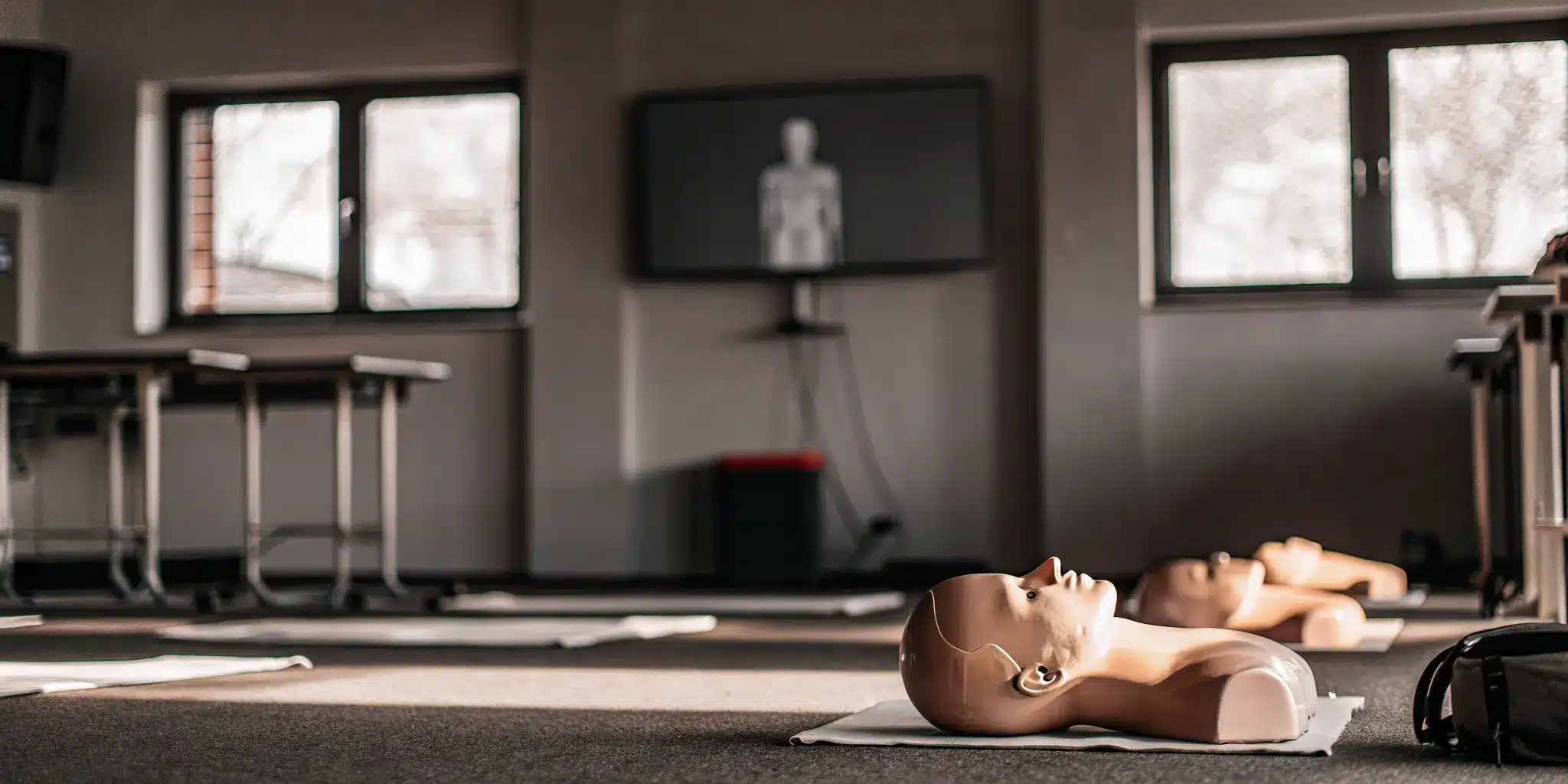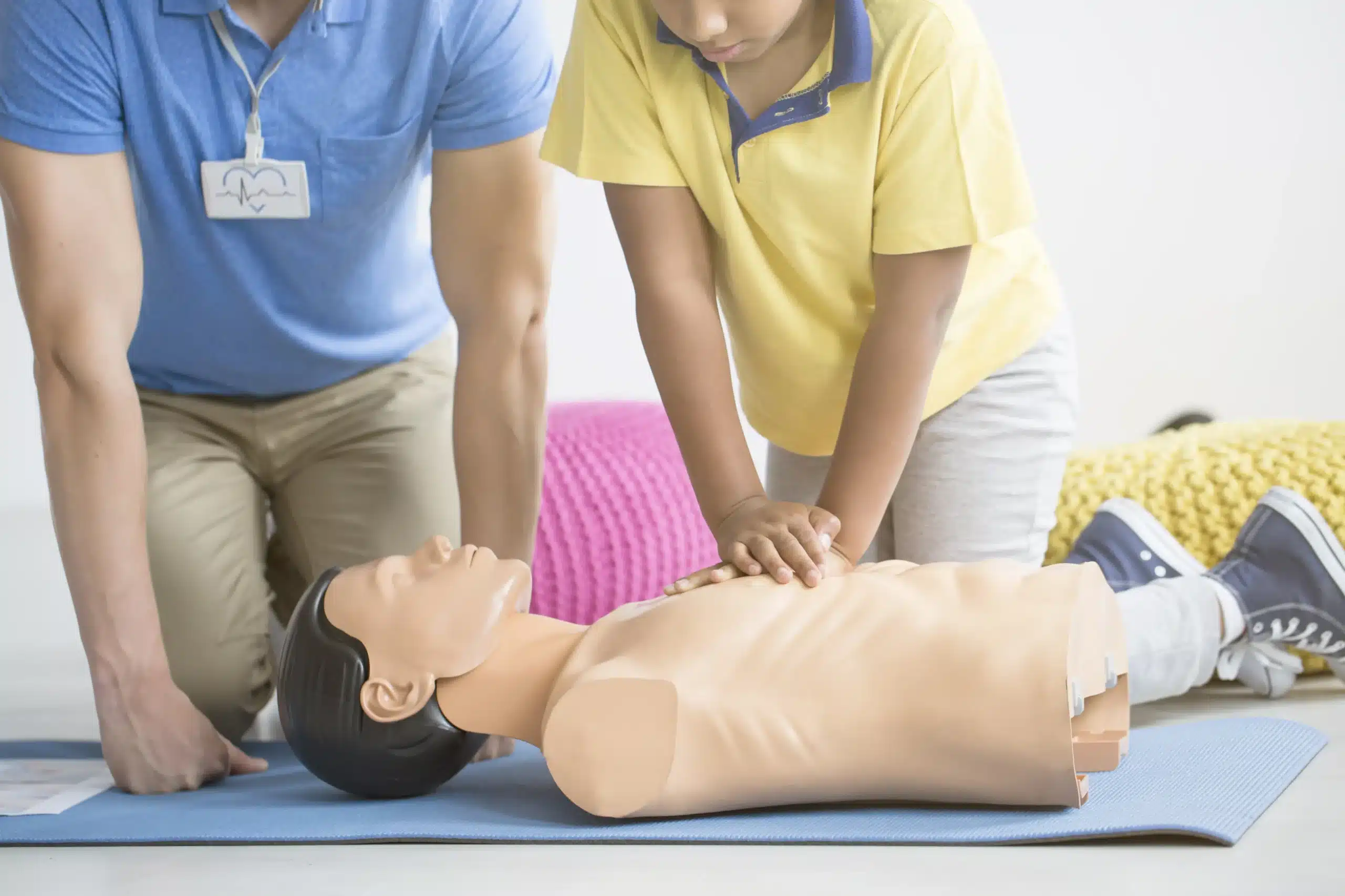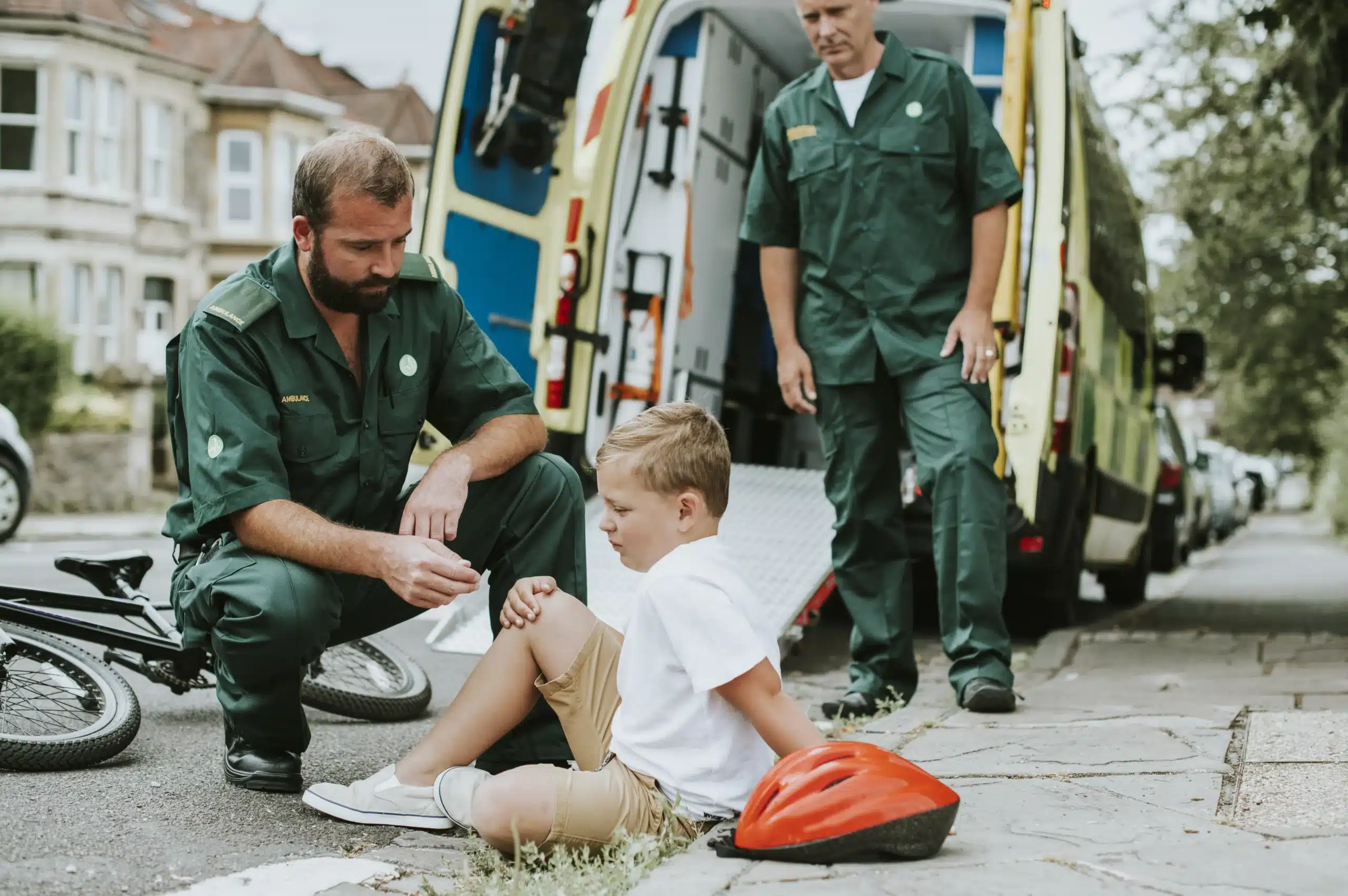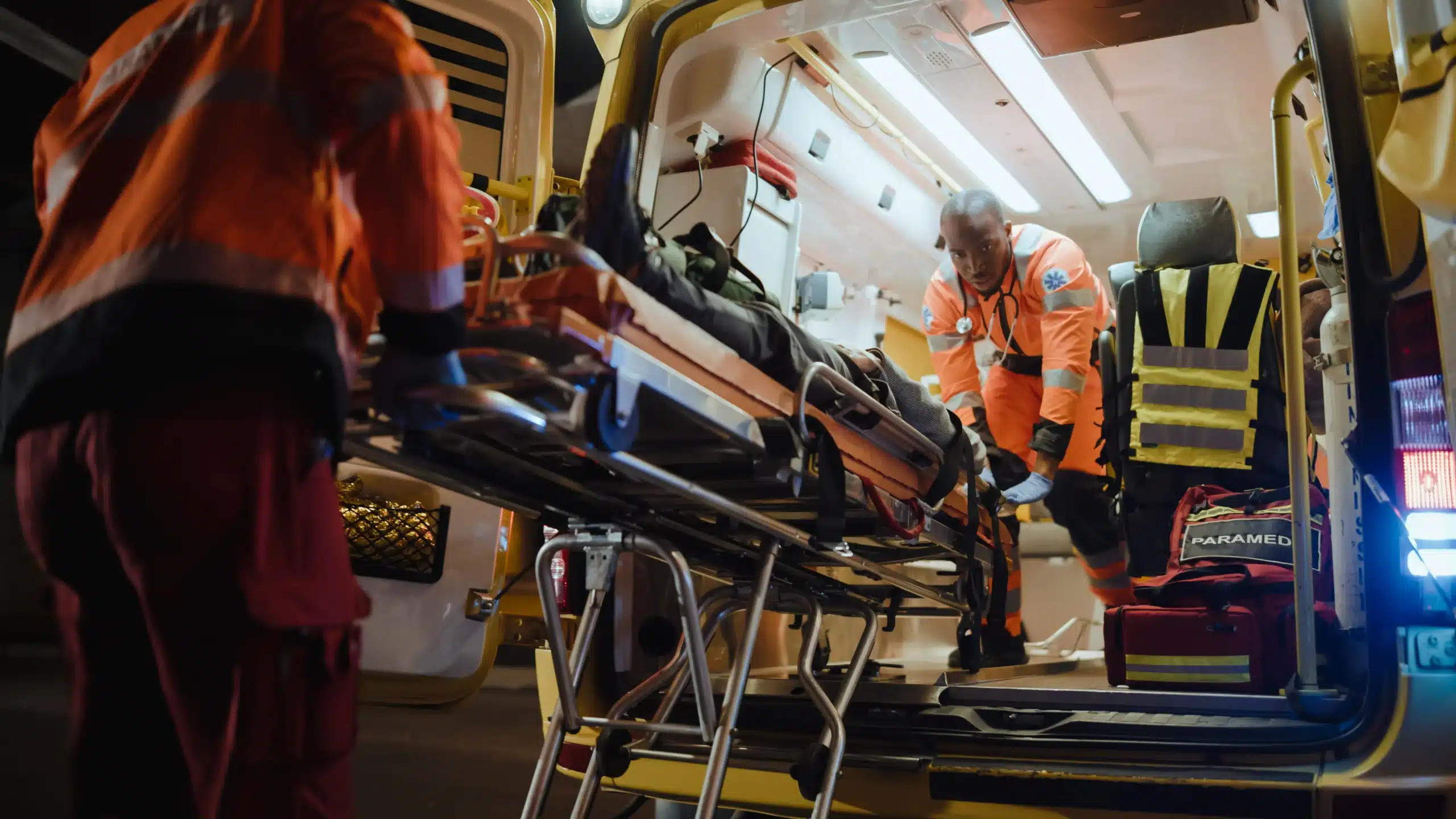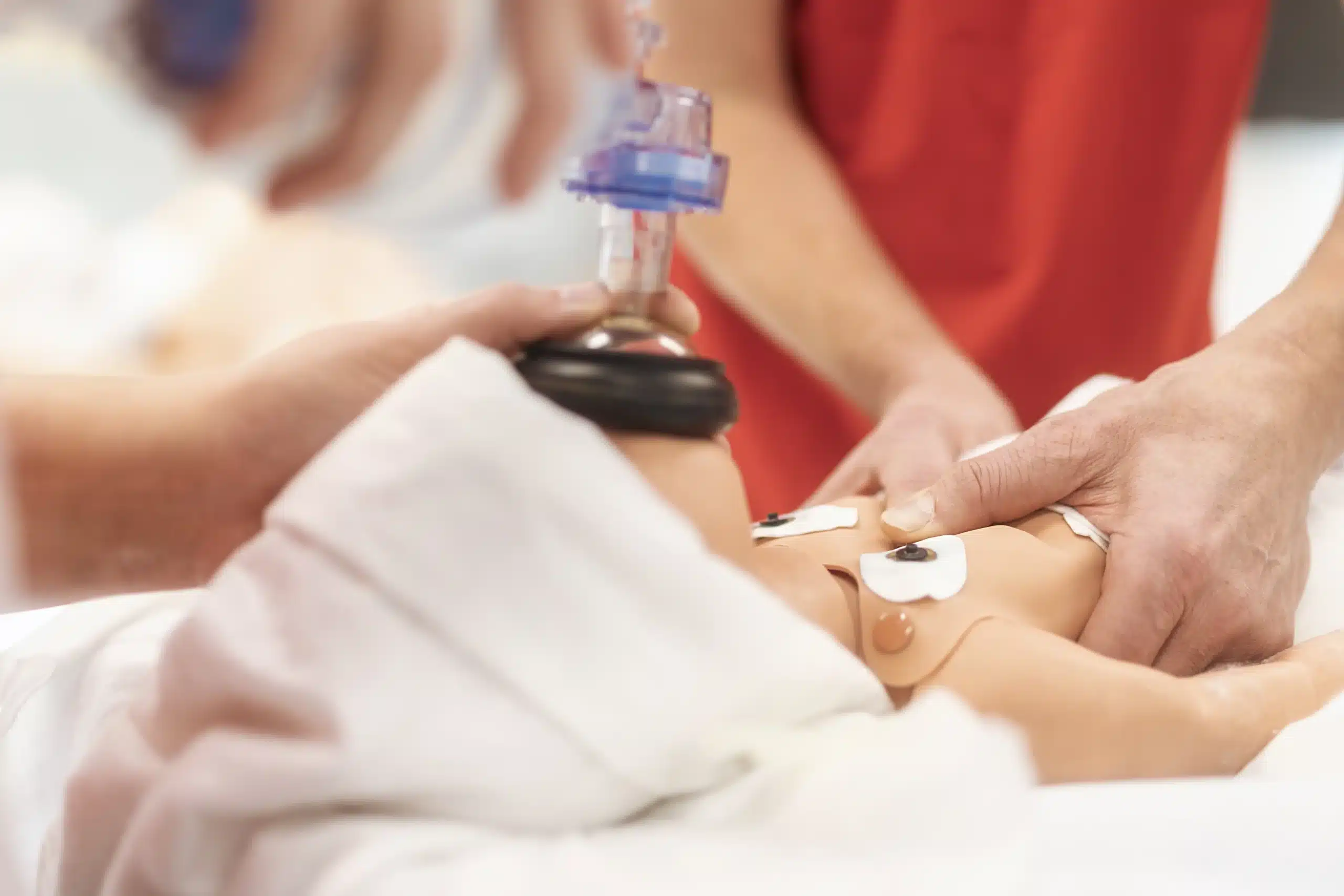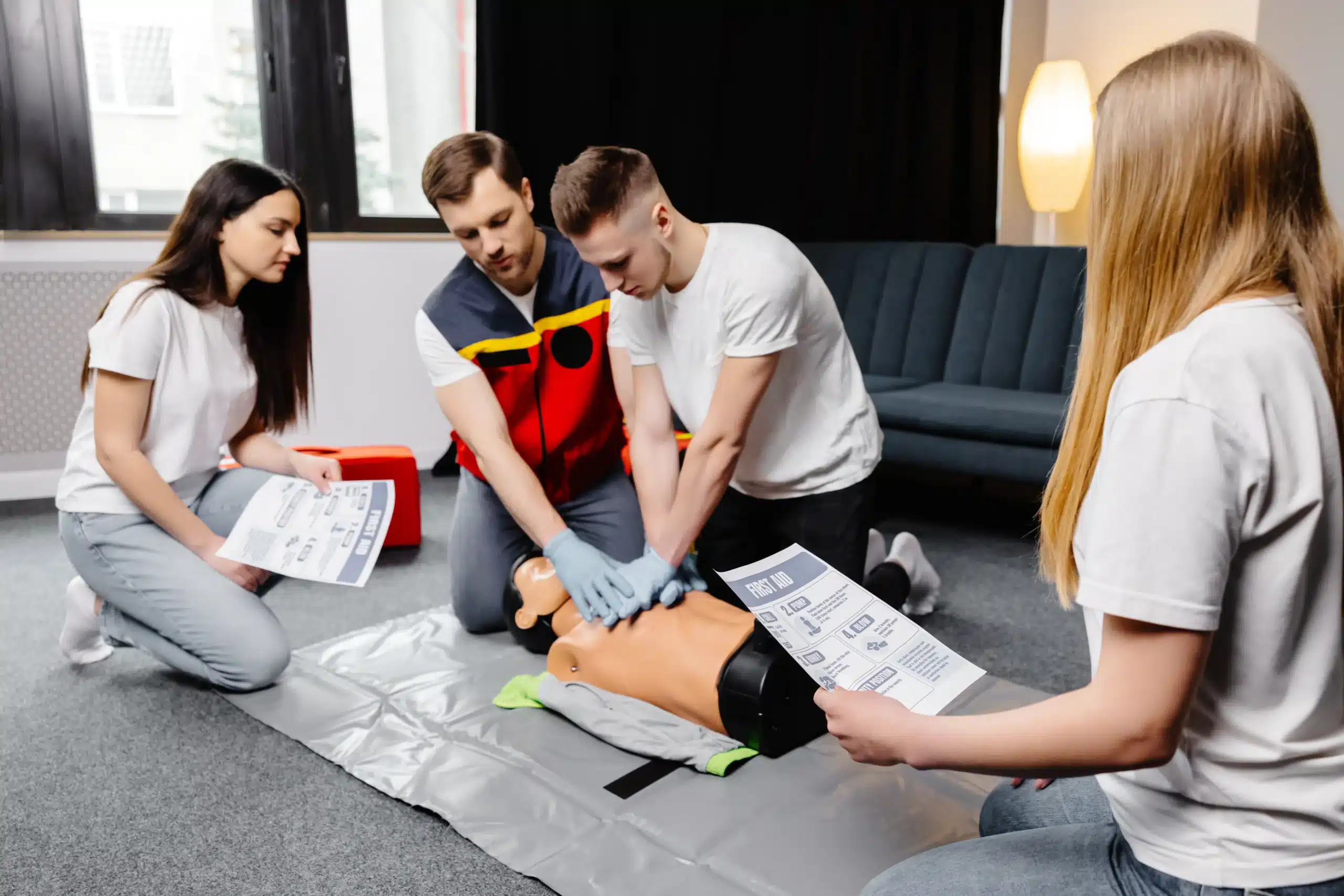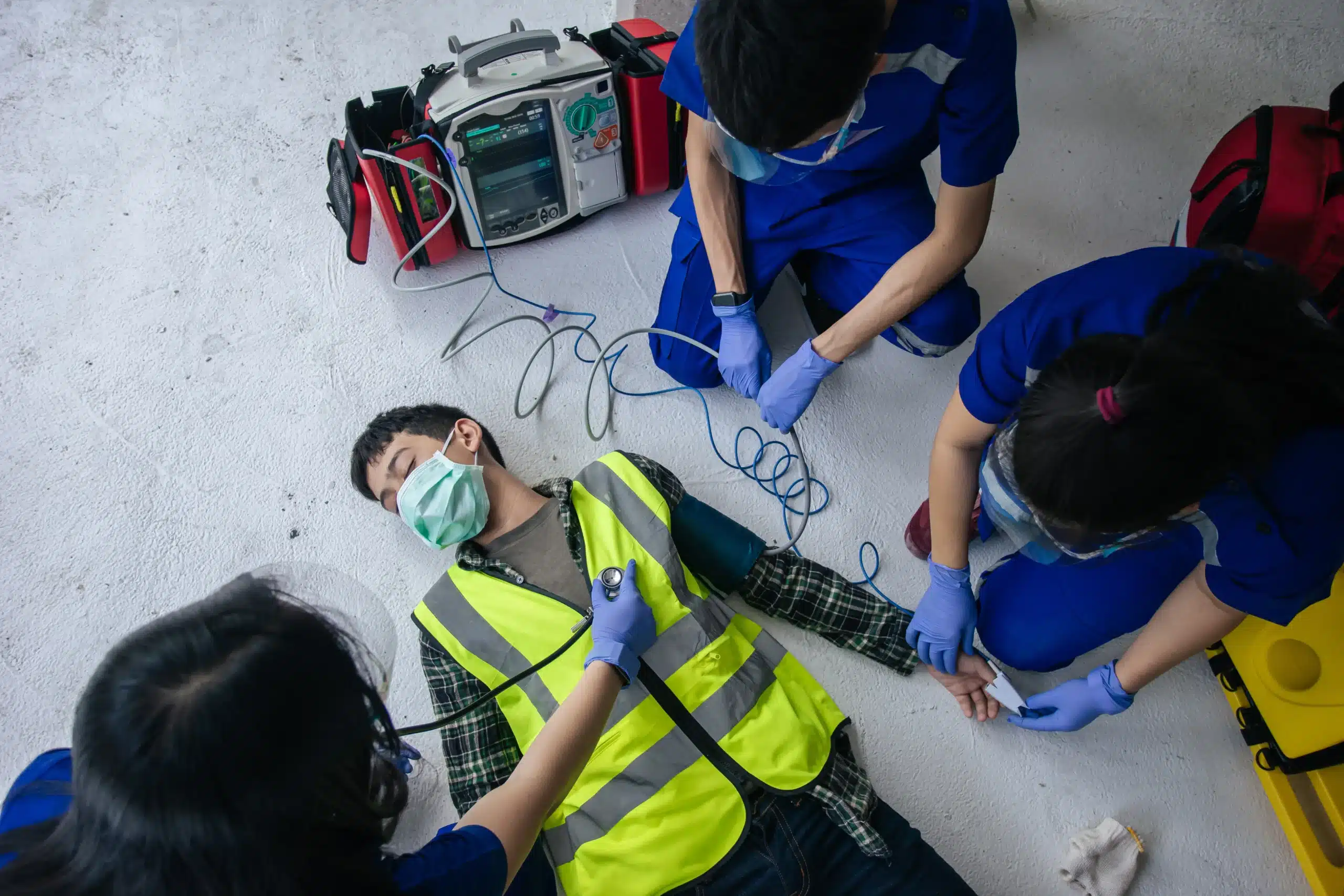Working in healthcare in San Jose, you understand the critical importance of maintaining your CPR skills. But traditional CPR training can feel like a logistical hurdle, requiring you to carve out large chunks of time and adhere to rigid schedules. RQI in San Jose offers a more flexible and efficient solution. This innovative program combines online learning with hands-on practice, allowing you to learn at your own pace and refresh your skills regularly. This blended learning approach ensures you’re always prepared to deliver high-quality CPR when it matters most. In this article, we’ll explore the benefits of RQI, compare it to traditional CPR training, and guide you through the process of getting certified in San Jose. We’ll also address common concerns and provide valuable tips for success in your RQI course.
Key Takeaways
- RQI provides flexible CPR training that adapts to your schedule: The blended learning format combines online modules with short, frequent skills sessions, making it easier to fit training into a busy lifestyle.
- Hands-on practice and real-time feedback improve CPR skills: RQI uses simulation technology and data-driven insights to help you refine your technique and maintain proficiency.
- RQI certification demonstrates a commitment to high-quality patient care: By staying up-to-date with the latest AHA guidelines and consistently practicing your skills, you’ll be prepared to respond confidently in emergencies.
What is RQI? Revolutionizing CPR Training in San Jose
This section explains what the RQI program is and how it differs from traditional CPR training. It’s designed to give healthcare providers in the San Jose area a clear understanding of this innovative approach to CPR education.
What is the RQI Program?
The Resuscitation Quality Improvement (RQI) Program, developed by the American Heart Association, offers quarterly training to help healthcare professionals master high-quality CPR skills. This innovative approach ensures providers maintain their skills and are prepared for emergencies. The RQI program offers a convenient and flexible way for staff to keep their AHA credentials current, making it a valuable resource for healthcare professionals in San Jose. Learn more about the RQI program.
How RQI Differs from Traditional CPR Training
RQI training may be incorporated into BLS, ACLS, and PALS certification courses. RQI classes offer state-of-the-art resuscitation training using simulation stations with real-time coaching and feedback to hone CPR skills. This hands-on approach allows participants to practice and refine their techniques, better preparing them for real-life situations. Unlike traditional CPR training, which often involves infrequent practice, RQI emphasizes “low-dose, high-frequency” training. This approach allows for more frequent skill refreshers and better retention of these critical life-saving techniques. Read more about how RQI improves healthcare training.
RQI Training: Unique Features
RQI training stands apart from traditional CPR courses with its innovative, blended learning approach. It combines online learning with hands-on practice and emphasizes continuous improvement. This section explores the key features that make RQI so effective for learning and maintaining CPR skills.
Data-Driven Learning
RQI uses data to track learner progress and pinpoint areas for improvement. This data-driven approach helps organizations refine their training and ensure their teams deliver high-quality CPR. This focus on measurable results sets RQI apart. Studies show significant improvements in CPR quality after implementing RQI programs. This approach not only enhances individual skills but also strengthens the overall effectiveness of resuscitation efforts. RQI provides valuable insights into performance, allowing for targeted training and better outcomes.
Simulation with Voice-Assisted Manikins
RQI incorporates simulation training with voice-assisted manikins (VAMs). These manikins provide real-time feedback on compression depth, rate, and recoil, allowing learners to refine their technique and build muscle memory. This interactive element adds realism and engagement that traditional CPR training often misses. The three-step process of online learning, VAM practice, and in-person certification ensures comprehensive skill development. Practicing with VAMs creates a more immersive and effective learning experience.
Frequent Skills Assessment & Retention
Unlike traditional CPR courses with long periods between renewals, RQI emphasizes frequent skills assessment and practice. This combats skill decay and ensures healthcare providers maintain proficiency in life-saving techniques. The RQI program addresses the challenge of maintaining crucial CPR skills through regular refreshers and assessments. This consistent reinforcement builds confidence and ensures providers are always ready to respond effectively in emergencies. This commitment to ongoing training is a core component of the RQI methodology.
RQI Certifications in San Jose
RQI isn’t a single certification, but a program that enhances several resuscitation certifications. Let’s explore how RQI elevates these crucial certifications in San Jose.
Basic Life Support (BLS)
The American Heart Association RQI program offers a modern and efficient path for medical professionals in San Jose to obtain their official AHA BLS certification. It’s a popular method for healthcare providers to refresh their skills and stay current with the latest resuscitation guidelines, ensuring they can confidently perform high-quality CPR.
Advanced Cardiovascular Life Support (ACLS)
RQI training integrates seamlessly into advanced certifications like ACLS, providing a comprehensive approach to resuscitation training. This integration helps healthcare professionals develop a deeper understanding of cardiovascular emergencies and the skills to manage complex situations.
Pediatric Advanced Life Support (PALS)
Similar to ACLS, RQI enhances PALS training, giving healthcare providers the specialized skills to respond to pediatric emergencies. The RQI program offers various solutions for improving resuscitation competence, including HeartCode® Complete and the RQI® Responder program, tailored to the needs of hospitals and their staff.
Who Should Get Certified?
RQI certification benefits a wide range of individuals and organizations. Healthcare professionals, including nurses, paramedics, physicians, and respiratory therapists, gain from the program’s focus on maintaining and improving resuscitation skills. Organizations seeking to establish or improve their resuscitation training programs also find RQI valuable. Whether you’re an individual provider or part of a larger organization, RQI offers advantages for anyone involved in emergency medical care. For more information, explore these RQI questions and answers.
Why Choose RQI in San Jose?
RQI offers several advantages over traditional CPR training, especially for busy healthcare professionals in San Jose. Let’s explore some key reasons why RQI might be the right choice for you.
Flexible Learning
Juggling work, family, and continuing education can be tough. RQI’s blended learning approach gives you the flexibility to complete the coursework online at your own pace. This means you can fit training around your schedule, not the other way around. The online modules let you review material whenever and wherever it’s convenient, making it easier to absorb the information. You’ll then schedule short, regular skills sessions to maintain your proficiency. This approach ensures you get the most from your training without major disruptions to your life. Learn more about how RQI works with your schedule.
Continuous Quality Improvement
Traditional CPR training often involves a single course with infrequent recertification. This can lead to skill decay and decreased confidence in emergencies. RQI addresses this with a subscription-based model that emphasizes continuous improvement. Short, frequent skills assessments help you retain knowledge and maintain consistent, high-quality CPR skills. This ongoing reinforcement ensures you’re always ready to respond effectively. The IU Health CPE provides a helpful overview of the RQI program.
Latest AHA Guidelines
Staying up-to-date with the latest American Heart Association (AHA) guidelines is crucial for providing the best possible care. RQI programs align with these guidelines, ensuring you’re always practicing the most current and effective techniques. Upon completion, you’ll receive an eCredential verifying your competence in high-quality CPR, giving you confidence and demonstrating your commitment to the gold standard of care.
Real-Time Feedback & Assessment
RQI uses innovative technology, including voice-assisted manikins, to provide real-time feedback during skills practice. This immediate feedback helps you identify areas for improvement and refine your technique. Studies show RQI-trained professionals consistently deliver higher-quality chest compressions—a critical factor in successful resuscitation. This focus on real-time assessment leads to better patient outcomes and increased confidence. SureFire CPR offers further insights into RQI training effectiveness.
The RQI Learning Experience: 3 Steps
The RQI program blends online learning with hands-on practice and skills assessment. This approach makes renewing your certifications more convenient and helps you retain lifesaving skills. Here’s what you can expect:
Self-Paced Online Training
The first step in RQI certification is completing the online portion. This self-directed training covers the core concepts and techniques of your chosen discipline (BLS, ACLS, or PALS). You can study at your own speed, reviewing materials as needed. This online training typically takes a few hours and can be done from anywhere with internet access. For healthcare professionals in San Jose, this offers a flexible way to meet certification requirements.
Hands-On Practice
After completing the online modules, you’ll move on to hands-on practice. RQI training incorporates simulation stations with advanced manikins that provide real-time feedback. These sessions allow you to apply your knowledge in a realistic environment, refining your CPR skills under the guidance of an instructor. This practical experience is key to building confidence and proficiency in resuscitation techniques.
Skills Assessment & Certification
The final step involves a skills assessment to demonstrate competency in high-quality CPR. You’ll perform specific skills on the RQI manikins, and the system will evaluate your performance. Upon successful completion, you’ll receive your official American Heart Association RQI eCredential, verifying your skills. The RQI program ensures that healthcare providers maintain up-to-date knowledge and skills through ongoing training. You can find RQI training in Morgan Hill through our training center.
Find RQI Training in San Jose
Finding the right RQI training provider is key to a positive and effective learning experience. Here are a few options to explore in the San Jose area:
Morgan Hill CPR Classes
Morgan Hill CPR Classes offers a variety of American Heart Association courses, including BLS, ACLS, and PALS. While they don’t currently offer RQI training, these certifications are valuable for healthcare providers and anyone seeking comprehensive CPR knowledge. Check out their BLS course, ACLS training, and other courses to find the right fit. They also offer discounts for group classes.
San Jose CPR Certification
San Jose CPR Certification provides RQI courses, offering a streamlined path to BLS, ACLS, and PALS certifications. They emphasize the program’s modern approach and efficiency for healthcare professionals. Learn more about their RQI classes.
AllCPR San Jose
AllCPR San Jose focuses on Red Cross certified CPR courses and AHA Basic Life Support training. While they don’t specifically list RQI training, their emphasis on building confidence and essential skills for emergency response makes them a valuable resource. Explore their CPR training options.
SureFire CPR
SureFire CPR incorporates RQI training into their HeartCode® Complete program, offering a blended learning approach for BLS, ACLS, and PALS certification. Their use of simulation stations with real-time feedback enhances the learning process. Find out more about their RQI-enhanced program.
RQI Program Costs & Value
When considering RQI certification, it’s natural to weigh the costs against the value it offers. Let’s break down the pricing structure, compare RQI with traditional CPR training, and explore the long-term benefits.
Pricing
The RQI program uses a subscription model, a different approach than the traditional fee-per-class structure. This subscription covers access to online learning materials, skills sessions, and the equipment needed to maintain your certification. Contact us at Morgan Hill CPR Classes for specific pricing details and to discuss the best subscription option for your needs.
Cost Comparison: RQI vs. Traditional CPR
Traditional CPR training typically involves a one-time fee for a course covering a specific period. You’ll need to recertify when that period expires, often requiring another class and fee. RQI, with its subscription-based model and frequent practice, aims to improve long-term skill retention. This can lead to cost savings over time by reducing the need for full refresher courses. The RQI program differs from traditional Basic Life Support (BLS) training by providing more frequent, low-dose, high-frequency training. This approach can be particularly helpful for healthcare providers who need to maintain high proficiency. For a deeper look at the differences, check out this RQI Program Overview.
Long-Term Benefits & ROI
The true value of RQI extends beyond the initial certification. The program focuses on continuous quality improvement, ensuring you’re always up-to-date with the latest American Heart Association guidelines. The emphasis on regular practice and assessment leads to better skill retention and increased confidence during real-life emergencies. The RQI eCredential verifies your competency, demonstrating your commitment to maintaining high-quality CPR skills. Studies show RQI-trained professionals consistently deliver high-quality chest compressions—a critical factor in positive patient outcomes. This consistent performance and adherence to best practices can be a significant asset in any healthcare setting. Learn more about how RQI elevates healthcare training in this article on clinical excellence and staff upskilling. Ultimately, investing in RQI contributes to improved patient care and a more confident and skilled healthcare workforce.
Common RQI Concerns
It’s normal to have questions about a new training program. Here are answers to some common concerns about RQI certification:
Blended Learning Effectiveness
RQI’s blended learning format combines online learning with hands-on practice. This approach lets healthcare professionals fit training into their busy schedules. You’ll learn essential CPR skills through self-directed online modules and then demonstrate competency during in-person sessions. This flexible approach ensures you receive high-quality training without disrupting your workflow. Learn more about how RQI accommodates busy schedules.
Certification Validity
Your RQI eCredential validates your CPR skills and shows you’ve met the American Heart Association’s training standards. The program focuses on “low-dose, high-frequency” training, meaning you refresh your skills regularly. This ongoing practice ensures you maintain competency and provides a higher level of CPR quality. RQI Partners offers further details about the certification process.
Program Complexity & Support
RQI might seem complicated at first, but it’s designed to be straightforward and accessible. You can find answers to common questions like “How does RQI work?” and “How often do I need to complete RQI training?” through resources like this helpful FAQ. The subscription-based nature of RQI ensures you receive ongoing support and resources to maintain your skills long after your initial certification. Indiana University Health provides additional information about the program structure.
Prepare for Your RQI Course
Getting ready for your RQI course is straightforward. Understanding the time commitment, gathering the necessary materials, and implementing a few simple strategies will set you up for success. We’re here to guide you through each step of the preparation process.
Time Commitment & Scheduling
One of the biggest advantages of the RQI program is its flexibility. Designed to accommodate busy schedules, the RQI program lets you complete training at your own pace. Instead of blocking out an entire day for a traditional CPR class, you can work through the online modules and skills sessions when you have time. This makes RQI a convenient option for healthcare professionals juggling demanding work schedules. You can learn more about flexible scheduling directly from RQI Partners.
Required Materials & Equipment
RQI training blends online learning with hands-on practice. The course comprises two key components: online learning modules and mannequin skill activities. You’ll complete the online modules at your convenience, covering essential concepts and procedures. The skill activities take place at designated RQI Skill Stations, where you’ll work with specialized equipment. These stations provide the necessary manikins and resources for realistic practice and skills assessment.
Tips for RQI Training Success
RQI training uses adaptive learning technology and simulation to reinforce learning and build proficiency. To maximize your learning, familiarize yourself with the 2020 American Heart Association (AHA) Guidelines for BLS and EMS. These guidelines form the foundation of the RQI program and ensure you’re learning the most up-to-date resuscitation techniques. Studies show RQI-trained professionals consistently deliver high-quality chest compressions, a critical element of effective CPR. By understanding the program’s structure and focusing on the core principles of CPR, you’ll be well-prepared to succeed in your RQI course.
Related Articles
- First Aid Classes San Jose: A Complete Guide – Morgan Hill CPR Classes
- CPR Certification Morgan Hill: Your Complete Guide – Morgan Hill CPR Classes
- RQI Classes in Morgan Hill – Morgan Hill CPR Classes
Frequently Asked Questions
How does RQI training differ from traditional CPR classes?
RQI focuses on short, frequent practice sessions using high-tech manikins that provide real-time feedback. This “low-dose, high-frequency” approach helps healthcare professionals maintain their skills and perform high-quality CPR when it matters most. Traditional CPR classes typically involve longer, less frequent sessions, which can lead to skill decay over time. RQI also incorporates online learning modules for added flexibility.
What certifications can I enhance with the RQI program?
RQI enhances several key certifications, including Basic Life Support (BLS), Advanced Cardiovascular Life Support (ACLS), and Pediatric Advanced Life Support (PALS). It’s not a stand-alone certification but a program that complements and strengthens these existing credentials. By integrating RQI training, you’ll maintain higher proficiency in these critical areas.
Where can I find RQI training in San Jose?
Several providers in the San Jose area offer RQI training. San Jose CPR Certification and SureFire CPR are two options that specifically incorporate RQI into their programs. While Morgan Hill CPR Classes doesn’t currently offer RQI training, they do provide other valuable AHA certifications like BLS and ACLS. It’s always a good idea to contact the provider directly to discuss your specific needs and find the best fit.
How much does RQI training cost?
RQI training typically uses a subscription model rather than a one-time fee. This subscription covers access to online learning materials, skills practice sessions, and the equipment you’ll need. Contacting a training provider directly is the best way to get specific pricing information and discuss the subscription option that aligns with your needs and budget.
What if I have a busy schedule? Can I still fit in RQI training?
Absolutely! RQI is designed with busy professionals in mind. The blended learning format combines online modules with shorter, more frequent hands-on skill sessions. You can complete the online portion at your own pace, fitting it around your work and personal commitments. The flexible scheduling of skill sessions makes it easier to maintain your certification without significant disruptions to your routine.
